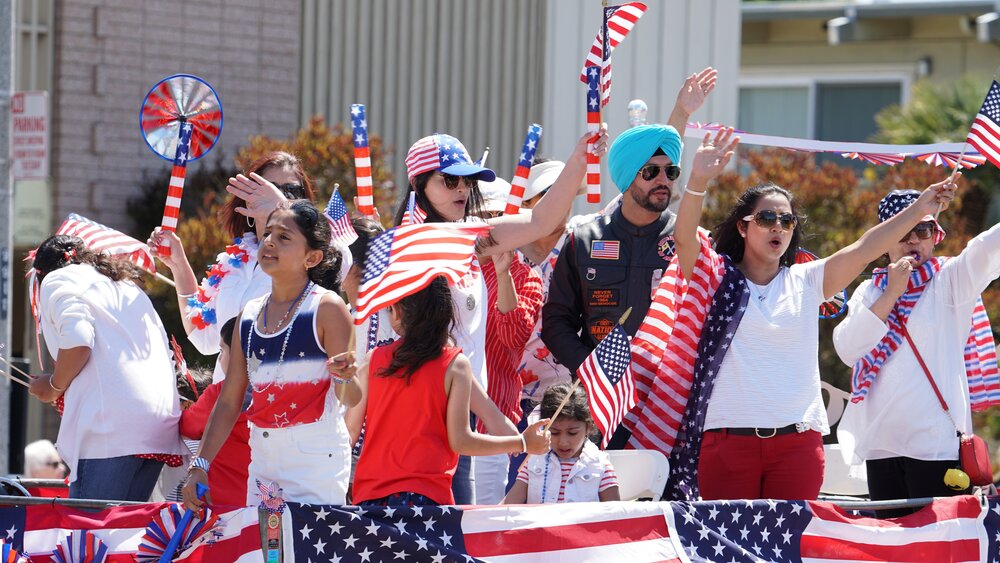I think everyone would agree that right now, it’s a crazy time to talk about politics. But true as that may sound at this present moment, more often than not, it always feels kind of crazy at any given point in our news cycle. So discussing and talking about politics in our polarized country is difficult, and it’s often easier to simply not say anything at all. But just because something can be difficult doesn’t mean that it’s not worth thinking about. Furthermore, politics is a part of the fabric of our life and it cannot be ignored. So rather than running, let’s setup a framework for discussing it with our kids.
Fundamentally, let’s start with what politics is. The word politics comes from the Greek word “politikos”, which is best defined as “relating to the citizens of a community.” In other words, politics at its base is about how a community organizes itself. So if the Bible has anything to say about how a community organizes itself, then we have an idea of how a Christian needs to think about politics.
Genesis 2:15 says, “The LORD God took the man and put him in the garden of Eden to work it and keep it.” This working and keeping in the garden is God’s mandate for mankind to steward God’s creation. And once Adam and Eve begin to bear children and become “fruitful and multiply”, (Gen 1:28) there is a need to develop a rudimentary political system to manage the community that forms. And I should note that all of this is established before the fall. Even though they were perfect, there would still be a need for order and laws. Imagine a perfect world with perfect automobile drivers.. wouldn’t we still want there to be traffic lights to help with the management of the roads? Politics is not a result of human sinfulness, but rather, politics has become corrupt with the advent of sin and evil.
When we speak about politics with our children, we must first and foremost frame it from the perspective of being a good citizen. Proverbs 11:11 says, “By the blessing of the upright a city is exalted, but by the mouth of the wicked it is overthrown.” Our political identity as Christians must start from the very Biblical idea that we behave as morally righteous citizens, so as to help to exalt the local community that we’re a part of. So whether that’s in the voting booth or in a classroom at school, we are all collectively responsible for the well-being of others, and politics is an opportunity for us to serve others well. Especially in our polarized political climate, we need to be reminded that this is precisely how Jesus himself navigated through that question of how we govern ourselves: “You shall love your neighbor as yourself.”
Second, we must frame politics from a kingdom perspective. That is, a proper political stance from a Christian takes into consideration that this world and this nation is not the end all be all. As Christians, we live for another kingdom. So this gives us hope in the midst of despair. Hebrews 12:28 says, “Therefore let us be grateful for receiving a kingdom that cannot be shaken, and thus let us offer to God acceptable worship, with reverence and awe”. Our hope is not in the Democratic Party, the Republican Party, or the Independents. Our hope is in God, who is sovereign over all things. (Psalm 115:3)
Thirdly, we should seek to understand politics from the perspective of justice. Because all humans are made in God’s image, we cannot make up rights for ourselves or deprive others of their rights because we think we’re better. So much of the conflict, pain, and suffering of this world at the hands of history’s governments has been a fundamental misunderstanding of the value of human life. The greatest genocides in modern times attest to the consequences of having a really distorted worldview. Isaiah 1:17 encourages us, “Learn to do good; seek justice, correct oppression; bring justice to the fatherless, plead the widow’s cause.”
One of the United States’ founding documents is the Declaration of Independence, and it opens with these famous words:
“We hold these Truths to be self-evident, that all Men are created equal, that they are endowed by their Creator with certain unalienable Rights, that among these are Life, Liberty, and the pursuit of Happiness.—That to secure these Rights, Governments are instituted among Men, deriving their just Powers from the Consent of the Governed.”
Notice, the Declaration does not grant these rights, but rather, it politically secures them for our people. In the same way, as Christians, we should consistently and constantly be working towards that which secures the inherent principles of life, liberty, and the pursuit of happiness for all the people in our communities, from the smallest family units to the nations of the world. So rather than disengaging in politics because it seems so overwhelming, we should take a deep breath, recognize that God is sovereign, and walk the pathway to securing this for others by embodying the gospel in the way we engage with politics. From the way we think and talk about politics all the way to how we vote, let’s seek to be a blessing to the communities around us, living with the privilege of dual citizenship in this world and in the kingdom of heaven.

